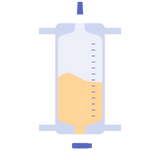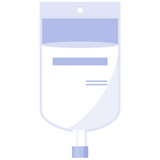
What is a Nurse Practitioner? Everything You Need to Know
Posted by Pankaj Dhiman on Sep 8th 2023
Nurse Practitioners: What They Do and How to Become One
In today's ever-changing healthcare landscape, itisimportant to understand the roles of different healthcare professionals. Nurse practitioners (NPs) are among the essential individuals who play a central role in providing comprehensive patientcare. In this blog, we'll dive into the world of nurse practitioners, discovering who they are, what they do, their education and training, the conditions they treat, and the reasons why.persuade you to consider seeing a nurse.
What Is a Nurse Practitioner?
Nurse practitioners, commonlyknown as NPs, are advanced practice registered nurses (APRNs) who have undergone specialized training and education. They are an integral part of the care team, bridging the gap between traditional registered nurses (RNs) and physicians.
Nurse practitioners are licensed to provide a variety of healthcare services, including diagnosing and treating medical conditions, prescribing medications, and even performing physical exams. Nurse practitioners are known for their holistic approach to patient care, focusing not only on treating specific diseases but also promoting generalhealth and preventativehealthcare. They are wellequipped to provide individualized care, taking into account patients' unique needs, preferences and circumstances.
What Does a Nurse Practitioner Do?
The scope of practice for nurse practitioners is diverse and encompasses various aspects of healthcare. Here are some of the key responsibilities and functions of nurse practitioners:
a. Diagnosing and Treating Medical Conditions: Nurse practitioners are authorized to diagnose and treat a wide range of medical conditions, from common illnesses like the flu and colds to chronic diseases such as diabetes and hypertension. They can also order and interpret diagnostic tests, such as lab work and imaging studies.
b. Prescribing Medications: NPs have the authority to prescribe medications, including antibiotics, pain relievers, and medications for chronic conditions. This ability can significantly improve patient access to timely and appropriate treatment.
c. Conducting Physical Examinations: Nurse practitioners are skilled in performing thorough physical examinations, which may include assessing vital signs, conducting neurological assessments, and evaluating a patient's overall health.
d. Providing Preventive Care: NPs emphasize preventive care, helping patients adopt healthy lifestyles and engage in routine screenings to detect potential health issues early.
e. Offering Patient Education: Educating patients about their health conditions, treatment options, and self-care strategies is a fundamental aspect of an NP's role. They empower patients to make informed decisions about their health.
f. Collaborating with Healthcare Teams: Nurse practitioners work closely with physicians, nurses, and other healthcare professionals to ensure comprehensive and coordinated care for patients. This collaborative approach enhances the quality of care delivered.
Education and Training
Becoming a nurse practitioner involves a rigorous educational and training journey. Here's an overview of the steps required to become an NP:
a. Bachelor's Degree in Nursing (BSN): The journey typically begins with earning a bachelor's degree in nursing. This undergraduate program provides aspiring nurses with the foundational knowledge and clinical skills needed for their profession.
b. Registered Nurse (RN) Licensure: After completing their BSN, individuals must pass the NCLEX-RN exam to become licensed as registered nurses. This license allows them to practice as RNs.
c. Master of Science in Nursing (MSN) or Doctor of Nursing Practice (DNP): To become an NP, nurses must pursue advanced education. They can choose between a Master of Science in Nursing (MSN) or a Doctor of Nursing Practice (DNP) program. Both paths include coursework in advanced clinical practice, pharmacology, health assessment, and more.
d. Clinical Experience: Nurse practitioner programs require students to complete a specified number of clinical hours, where they gain hands-on experience in various healthcare settings. This clinical training is essential for developing practical skills and competencies.
e. Certification: Upon completing their advanced nursing education, aspiring NPs must obtain national certification in their chosen specialty. Certification requirements vary by specialty but generally involve passing a standardized exam.
f. State Licensure: NPs must also obtain state licensure, which grants them the legal authority to practice within a specific state. State licensure requirements may vary, so it's essential to check with the state's nursing board.
What Conditions Does a Nurse Practitioner Treat?
Nurse practitioners are trained to provide care across the lifespan, from infants to the elderly. Their versatility allows them to address a wide array of medical conditions, including but not limited to:
a. Primary Care: NPs are often the first point of contact for patients seeking primary care services. They can manage common illnesses, perform routine check-ups, and help patients manage chronic conditions like diabetes and hypertension.
b. Women's Health: Nurse practitioners specializing in women's health can provide comprehensive gynecological care, perform Pap smears, and offer family planning services.
c. Pediatrics: NPs with a pediatric focus are skilled in providing care to children, including well-child visits, immunizations, and the management of pediatric illnesses.
d. Geriatrics: Geriatric NPs specialize in caring for older adults, addressing age-related health issues, and promoting healthy aging.
e. Acute Care: Some NPs work in acute care settings, such as hospitals and urgent care centers, where they manage acute illnesses and injuries.
f. Mental Health: Psychiatric-mental health nurse practitioners (PMHNPs) diagnose and treat mental health disorders, offering therapy and prescribing medications when necessary.
g. Specialty Areas: NPs can also specialize in areas such as cardiology, oncology, dermatology, and more, providing expert care in their chosen fields.
Reasons to See a Nurse Practitioner
Now that we've explored the role and capabilities of nurse practitioners, let's delve into some compelling reasons why you might consider seeking care from an NP:
a. Accessibility: Nurse practitioners often have more flexible schedules and shorter wait times than physicians, making it easier to access timely healthcare services.
b. Comprehensive Care: NPs offer holistic and patient-centered care, considering not only physical but also emotional and social factors that impact health.
c. Continuity of Care: Many patients prefer seeing the same healthcare provider for their ongoing healthcare needs. NPs can provide consistent care and build long-term relationships with patients.
d. Preventive Care: NPs prioritize preventive care, helping patients maintain good health and detect potential issues early through screenings and education.
e. Cost-Effective Care: In many cases, seeing a nurse practitioner is more cost-effective than visiting a specialist or a physician, making healthcare more affordable for many individuals and families.
f. Patient Education: NPs take the time to educate patients about their health conditions and treatment options, empowering them to actively participate in their care.
g. Focus on Wellness: Nurse practitioners emphasize wellness and healthy lifestyles, offering guidance on diet, exercise, and stress management to help patients lead healthier lives.
Conclusion
Nurse practitioners are invaluable members of the healthcare community, providing a wide range of services and promoting holistic patient care. Their extensive education, clinical expertise, and patient-centered approach make them an excellent choice for primary and specialty healthcare needs. Whether you seek preventive care, treatment for a chronic condition, or assistance with managing acute illnesses, nurse practitioners are well-equipped to meet your healthcare needs. The next time you consider seeking medical care, don't hesitate to consider the compassionate and skilled care provided by nurse practitioners





























































